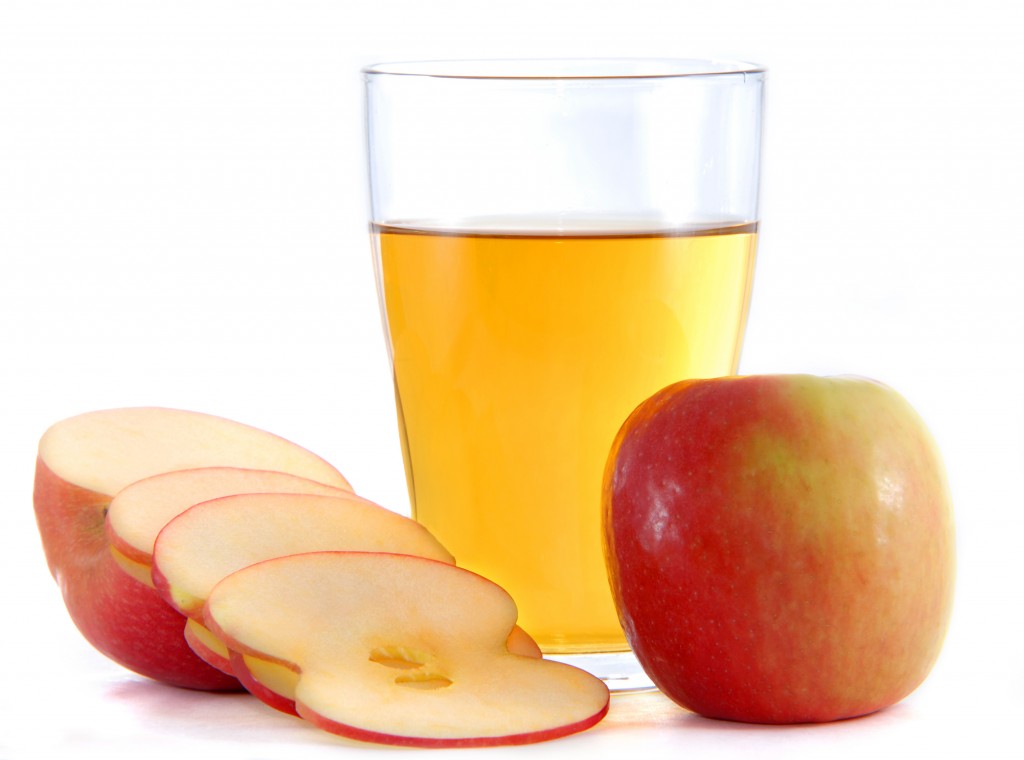 I understand you don’t want to, but you have to admit this: Feeding your kids nutritious and health meals every time is almost impossible. If you have admitted that you can’t ace your kids’ dietary life, you can at least try not to feed these following items.
I understand you don’t want to, but you have to admit this: Feeding your kids nutritious and health meals every time is almost impossible. If you have admitted that you can’t ace your kids’ dietary life, you can at least try not to feed these following items.
1. Apple Juice
“All these juice boxes and pouches parents are always giving kids are essentially just sugar,” says Wesley Delbridge, RD, an Academy of Nutrition and Dietetics spokesman who specializes in children’s nutrition. He comments that all types of fruit juice is unhealthy, but he takes a special notice of apple juice, which kids drink most frequently due to parents’ wrong belief that it is healthier than other kinds. Not only it high in calories with 160 calories a cup, most of sugar in apple juice is comprised of fructose.
2. Honey
Surprisingly, honey shouldn’t be fed to kids until they’re 2 years old, for its content of a toxic bacteria that causes botulism, a potentially fatal disease. While this bacteria is harmless to most adults, children’s immune systems are not strong enough to fight against it, which is the reason they should avoid honey until their immune systems are built up enough.
3. Soda
There are tons of studies naming soda as a trigger for obesity, type 3 diabetes, and aggressive behavior in children. However, soda consumption among children is still high. A 20-ounce bottle of soda contains an average of 60 grams of sugar, which is four times what kids should consume in an entire day.
4. Instant Mac ‘n’ cheese
Instant Mac ‘n’ cheese is highly processed, devoid of nutrients, but loaded with sodium and preservatives. Continued consumption of such food may condition kids’ developing palates to crave more salty and processed food.
5. Fruit Snacks
Even though many of them say “made with real fruit” on its wrapper, they are not real fruits, but loads of sugar.
6. Canned Tuna
Fish is usually nutritious, but when canned, children should stay away. Canned swordfish, king mackerel, tilefish, and albacore tuna have high mercury content that can affect the nervous system of young children.
7. Granola Bars
Contrary to the popular conception of granola bars as healthy snack, most of granola bars have little protein and fiber, but much sugar. Try to read ingredients lists to make sure they contain real nuts, fruits, whole grains, and no high-fructose corn syrup.
8. Sports Drinks
Instead of sugary sports drinks, a bottle of water or sliced oranges and other fruits are much recommended to replace lost vitamins, minerals, and water.
9. Frozen Foods
Most of frozen foods are high in sodium, saturated fat, and preservatives and made with poor-quality chicken, fish, or cheese.
10. Dipping Sauces
Dipping sauces, including ketchup, can add unnecessary extra calories and gat to a meal. Try making healthy sauce using Greek yogurt and seasonings.
11. Raw milk
Raw milk may be healthier with its digestive enzymes and other nutrients, but it is risky for kids to drink since unpasteurized food is more likely to cause food-borne illness, especially to children whose immune systems aren’t as developed.
Original document available from http://www.koreadaily.com/news/read.asp?page=15&branch=NEWS&source=&category=lifenleisure.health&art_id=3929644
Translated by Heewon Kim


![Actor Daniel Dae Kim to produce and star in new CNN travel show on Korea Actor Daniel Dae Kim speaks during a press conference for spy thriller ″Butterfly″ held in Yongsan District, central Seoul, on Aug. 21. [YONHAP]](https://www.koreadailyus.com/wp-content/uploads/2025/11/1119-DanielDaeKim-218x150.jpg)
![Model Moon Ga-bi slams the spreading of deepfake content using son’s image Photos uploaded on model Moon Ga-bi's Instagram of her son [SCREEN CAPTURE]](https://www.koreadailyus.com/wp-content/uploads/2025/11/1105-MoonGabi-218x150.jpg)



